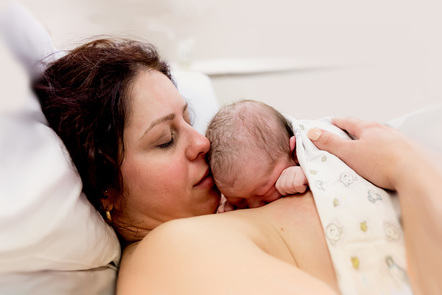How to become a neonatal nurse
The healthcare sector is full of vital, life-changing roles, including caring for premature or sick babies. Learn how to become a neonatal nurse with the help of FutureLearn.

Those who work in the nursing profession can make a real difference in someone’s life. If you want to pursue a life-changing career that helps those in need, learning how to become a neonatal nurse will open up a world of opportunity.
Specifically, a neonatal nurse provides support and care to newborn babies and their parents. So, if your passions lie with helping people, a career within this sector ticks all of the right boxes.
In this article, we’ll explore everything you need to know about becoming a neonatal nurse, from how long it takes to gain your qualifications to salary expectations.
What is a neonatal nurse?
The main role of a neonatal nurse, also known as NICU, is to care for newborn babies that are born with health problems. Some of the specific healthcare needs a neonatal nurse may need to deal with include:
- Prematurely born babies
- Respiratory problems
- Nutritional issues
- Heart problems
- Chronic conditions
- Disabilities
It’s the responsibility of a neonatal nurse to care for babies that are experiencing difficulties during the first four weeks of their lives. During this time, they’ll work with family members to help them care for their newborn, while also working with other healthcare staff for the care that’s required.
They also assist with general care for babies, such as changing nappies, checking and preparing medications, and managing fluids.
How to become a NICU nurse
To become a neonatal nurse, you’ll need first to become a registered adult nurse, child nurse, or midwife. This involves completing a relevant undergraduate degree or apprenticeship and registering with the Nursing & Midwifery Council.
You’ll also find that most employers will ask for experience working with neonatal nursing issues, such as bereavement and discussing serious life-threatening conditions.
Once you have gained six months of relevant experience, you’ll need to work on your professional development. This involves taking part in training related to neonatal nursing, which is often delivered by your employer and universities. You can complete some of these nursing CPD courses online.
Once you’re qualified as a registered nurse and have the relevant experience, you can then start applying for jobs.
Interested in getting a nursing degree online? Check out our range of online nursing degrees from first-class universities, and get qualified at your own pace.
What skills are required to become a neonatal nurse?
To do the job to the best of your ability, there are some skills that will come in handy:
- Organised and able to prioritise workload
- Able to work calmly under pressure
- Observant, with a keen eye for detail
- Good team player
- Empathetic and caring
- Patient and understanding
- Understand the needs of a newborn
As with any role within nursing, the soft skills required to become a neonatal nurse are very similar. The fact you’re even contemplating a career within the healthcare profession suggests that with a bit of work, you’ll have what it takes.
How long does it take to become a neonatal nurse?
The longest part of your journey is the process of qualifying as a registered nurse. If you decide to study a relevant nursing degree, full-time at university, then you can expect to complete your course in three to four years. However, if you choose to study part-time, then it will take longer.
Once you’re a registered adult nurse, child nurse, or midwife, you’ll then need six months of relevant experience, before taking part in training specific to the role of a neonatal nurse.
Overall, the length of time it takes to become a neonatal nurse will typically be a minimum of four to five years.




Neonatal nurse salary
In the UK, the national average for a neonatal nurse salary is £37,930 per year. However, this will depend on where you sit using the Agenda for Change pay system – for a neonatal nurse, this typically stands at band 5. Expected pay can be broken down into:
- Experience below 2 years – £28,407
- 2 to 4 years – £30,639
- 4+ years – £34,581
In addition to experience, other factors that will determine your pay can include your location, education, and whether you work in the public or private sector.
You’ll receive a generous pension scheme, health service discounts, and at least 27 days of annual leave plus bank holidays.
In the US, you can earn an average salary of $71,497 – this is a good example of how location can impact your salary.
Other notable average salary expectations from around the world include:
What careers are available as a neonatal nurse?
The good news is that once you become a qualified neonatal nurse, there are still opportunities for progression. Other possible areas you could move into include:
- Infection control – since this is a key part of your role as a neonatal nurse, you’ll be able to apply your expertise to become an infection control nurse. This involves making sure that healthcare premises are free of harmful bacteria and viruses.
- Palliative care – as you’ll be experienced in dealing with family bereavements, you could consider becoming a palliative care nurse. This role specifically deals with patients who are nearing the end of their lives.
- Management – whether you want to become a team leader or unit manager, the leadership skills you’ll acquire as a neonatal nurse can help you land a role in management.
- Consultancy – you can also use the experience and knowledge you’ve gained to become a neonatal nurse consultant.
- Education – another option is to pursue a role in education, where you train student nurses or support current nurses with their continuous development.
Due to the many transferable skills and the knowledge you gain, once you become a neonatal nurse, you’ll find it opens doors to many other roles within the healthcare profession.
How to become a neonatal nurse: additional learning
Now that you have all the information you need to become a neonatal nurse, the next step is to consider whether this is the right career for you and get the ball rolling.
At FutureLearn, we offer a variety of healthcare and medicine courses to support your learning, including some excellent programmes specific to nursing. If you’ve decided this is the career for you, you’ll also benefit from our targeted fertility and birth courses.
Kickstart your ambitions today, and with our help, take the next steps in making a difference in people’s lives.
Find an online neonatal nursing course on FutureLearn
- Infant Nutrition: from Breastfeeding to Baby’s First Solids by Deakin University
- Retinopathy of Prematurity: Practical Approaches to Prevent Blindness by the London School of Hygiene & Tropical Medicine and International Centre for Eye Health
- Loss of a Baby in Multiple Pregnancy: Supporting Grieving Parents by The Newcastle upon Tyne Hospitals NHS Foundation Trust
- Assessment of the Newborn by Griffith University
- Maternity Care: Building Relationships Really Does Save Lives by Griffith University











